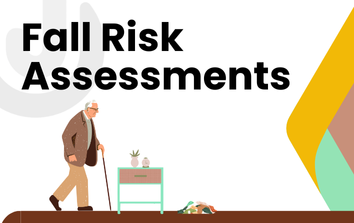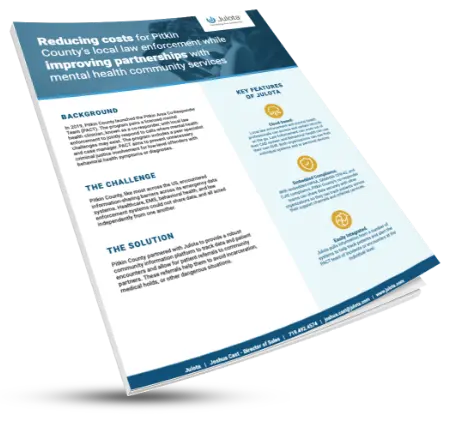There is no question that both social workers and law enforcement officers are vital to keeping communities safe and assisting people in getting the help they need. However, it seems that social workers and police officers have been pitted against each other for a very long time. Of course, it is false, but people often feel that the police do not care about the person they arrest.
They do not seem concerned about people with mental health issues or drug problems. However, conversely, people assume that social workers care more about the people they are trying to help than the safety of police officers.
It is probably safe to say that this has never actually been the reality. The fact that police arrest people does not mean that they are not human beings and do not care about others. However, the perception people have is essential, and changing that perception is crucial. If police officers and social workers can work together, the communities will be better protected and served.
People who are struggling with addiction and mental health issues will be better-taken care of. Nevertheless, there is no competition here; there needs to be a collaboration between the police and the social workers. From start to finish, individuals who suffer from mental health or substance abuse issues who are involved in a police encounter need to have social workers or case managers involved.
In many parts of the country, this marriage of social work and policing is happening and with smashing success. CIT, Co-Responder, and Jail Diversion programs are quickly originating all over the country.
Police Are Not Trained to Be Social Workers – And They Should not Be
Generally speaking, police officers get very little training in dealing with people suffering from mental health crises or suffering from addiction. Progressive police departments send their officers to CIT (Crisis Intervention Training). Many departments have dedicated officers for people suffering from mental health or substance abuse issues. Police officers are trained to protect the communities they serve. Of course, we all expect and hope police officers treat people with dignity, and almost all of them do. However, there is currently much outrage at how a select few police sometimes treat the public these days. Sometimes the outrage is warranted, and other times it really is not.
Can we expect police officers to protect themselves and the community while acting as social workers? Of course, it would be ideal if they had more training to handle people in crisis. However, that is not necessarily the answer. The answer may be finding a way to bridge the gap between police officers, social workers, and other mental health professionals. It is the job of mental health professionals to help people suffering from addiction and mental health issues. Of course, there has to be a collaboration between them and the police. However, there also has to be more than just providing a bit more training for police officers.
We all know how important the police are. We can probably agree that almost all police officers join the force because they want to make a positive change. De-escalation tactics are necessary, and some knowledge of mental health and addiction is imperative. Nevertheless, we cannot ask police officers to be solely responsible for handling a person experiencing a mental health crisis. Suppose we have more resources and systems in place to help these people. In that case, the police will have more resources available to help them also.
The Importance of Social Workers and Other Mental Health Professionals
Mental health professionals undoubtedly play a vital role in helping people struggling with addiction and other mental health problems. If we can integrate the work they do into the criminal justice system, the outcome would benefit everyone.
Mental health professionals help people get the treatment they desperately need. However, it is unrealistic and unfair to expect mentally ill people to be productive members of society. Not when they are not provided with the resources they need, such as counselling and addiction treatment.
When a person involved in the criminal justice system gets connected with good mental health professionals, it can make all the difference. Imagine if people coming out of jail who need help with addiction or mental health treatment get the help they need and are connected with the appropriate resources.
Instead of being released with no support in place, they could be released into the hands of people who care about them and can truly help them get their lives back on track.
The way we handle people in the criminal justice system right now does nothing but set them up for failure. As a result, people are released from prison with no money, no resources, no mental health treatment, and often nowhere to live.
There is no surprise that they then commit crimes and get arrested again. Moreover, this is not the fault of the police or social workers. It is how the system has been designed, and it is a problem. The system was not created overnight, so it certainly cannot be changed overnight. Still, police officers and social workers can come together and try to change that.
In the same regard, it cannot be the sole responsibility of social workers and mental health professionals to make sure people get the help they need. It can make a huge difference when a mentally ill person who crosses paths with the police is treated like a human being. Instead of a criminal who does not deserve to be treated with dignity. When police and social workers come together and bridge the gap, it is bound to be beneficial for every single person involved.
Make It Easier for Everyone Involved
Bridging the culture between law enforcement and social workers is the ultimate goal. If the police and the social workers can work together, there will be far fewer repeat offenders. People struggling with mental health issues and addiction generally end up in the criminal justice system due to their illness. When that illness is treated correctly, and they get the help they need and deserve, they are hopefully removed from the criminal justice system. They can become productive members of their community.
With empathetic and understanding police officers, in conjunction with social workers and case managers, making sure patients are getting everything they need, will make life easier for everyone involved.
Maybe they can get them into a treatment facility or help them find a methadone clinic. Social workers and case managers can do things as simple as assisting people in receiving meals from a food bank, obtaining a driver’s license or social security card, or whatever else they need help with.
Suppose the police and mental health professionals work together. In that case, this process could be expedited, and people would re-offend far less often. Nevertheless, unfortunately, it is unrealistic to expect someone struggling with a mental illness or addiction to go to jail and come out ‘better’ than they were before they went in. The unfortunate truth is that there is almost no meaningful treatment in jails and prisons.
Change Does Not Happen Overnight
We all know that change does not happen overnight. For example, police officers are trained quite differently from social workers, and they should be. However, the goal is to change how mental health professionals and law enforcement interact slowly over time. In turn, this will change the experiences that people have with the police, especially those suffering from mental illnesses and addiction issues.
If the police know that they have social workers they can call on regularly to help them on the scene, it will de-escalate many situations. Rather than arrest first and ask questions later, if the cultural gap is bridged between police officers and social workers, they will be more likely to make phone calls and ask questions first, then arrest later only if necessary. The culture of treating police officers as the enemy has to stop. We must all work together if we ever have any hope for change in this country.
Technology Bridges the Gap
In addition to figuring out how police officers and mental health professionals can work together more constructively, it is also essential to use the already existing technology. What if law enforcement could communicate easily and electronically? What if they could see if a person was already in treatment for mental health or substance abuse? Julota is the bridge between law enforcement and social services.
Julota is a software program that can bridge the gap from a technological perspective. As a result, police officers and mental health professionals can share information and make it much more easily accessible.
For example, when the police encounter an individual that they are about to arrest, they can immediately get information on their CAD system that informs them if the person is engaged in mental health or addiction treatment. In addition, they can see if this person has a counsellor or case manager. The software can give them an advanced look at the people they are coming into contact with. Knowledge and information like this can help them understand what might be a better way to deal with the situation rather than just arresting them.
The police can then decide to call in the best people to help defuse the situation. By doing this, they can get individuals struggling with mental health issues reconnected with the appropriate resources instead of arresting them.




